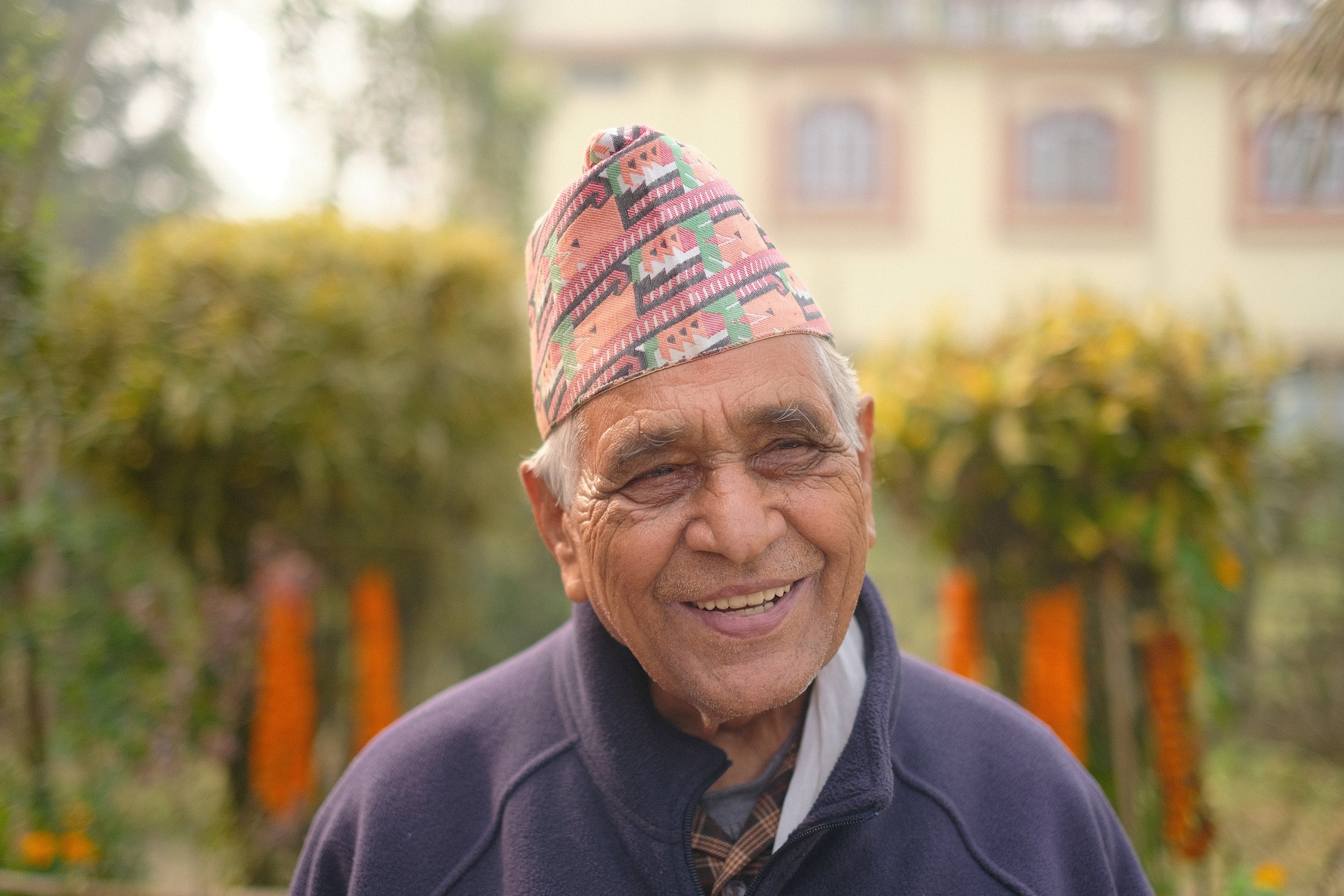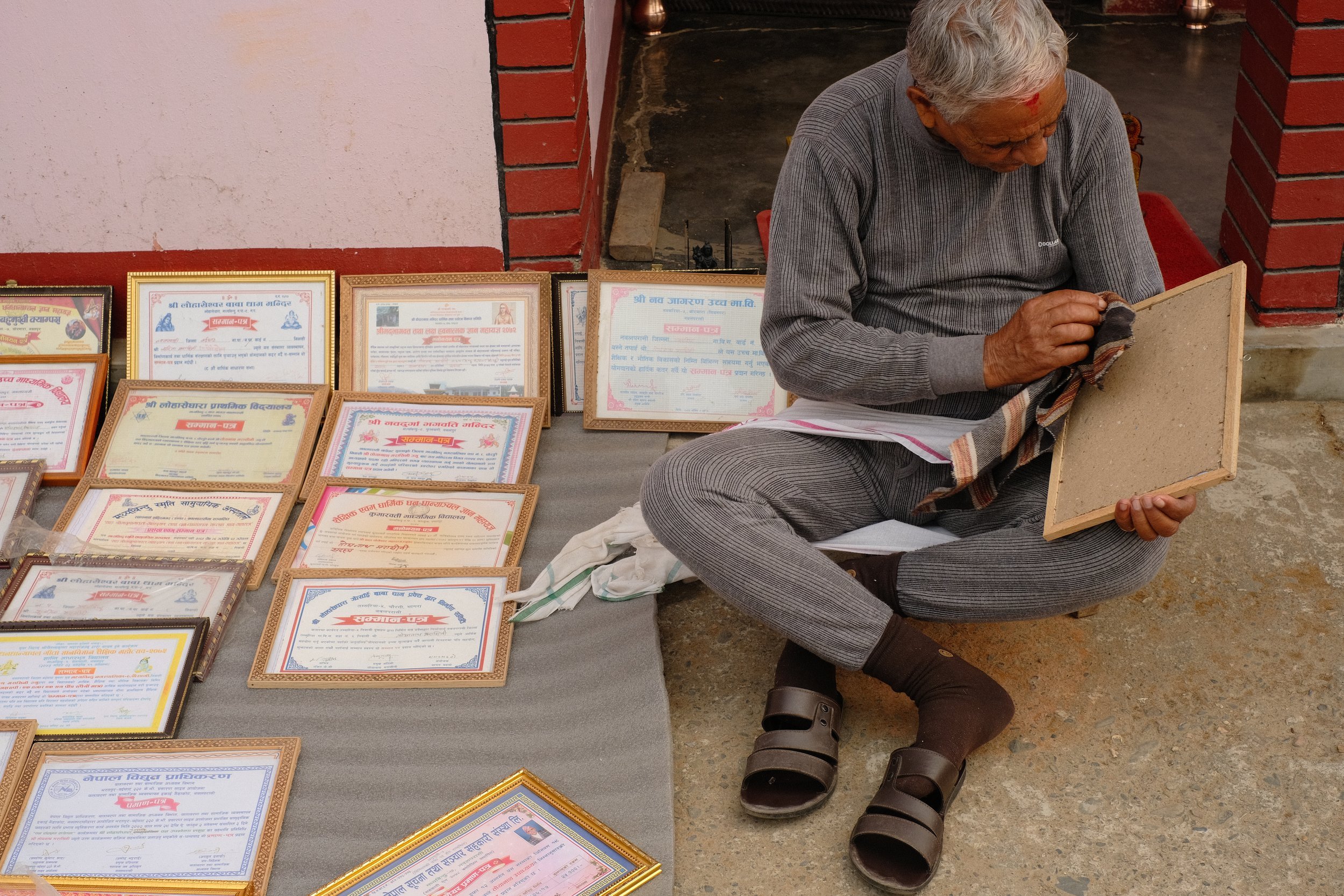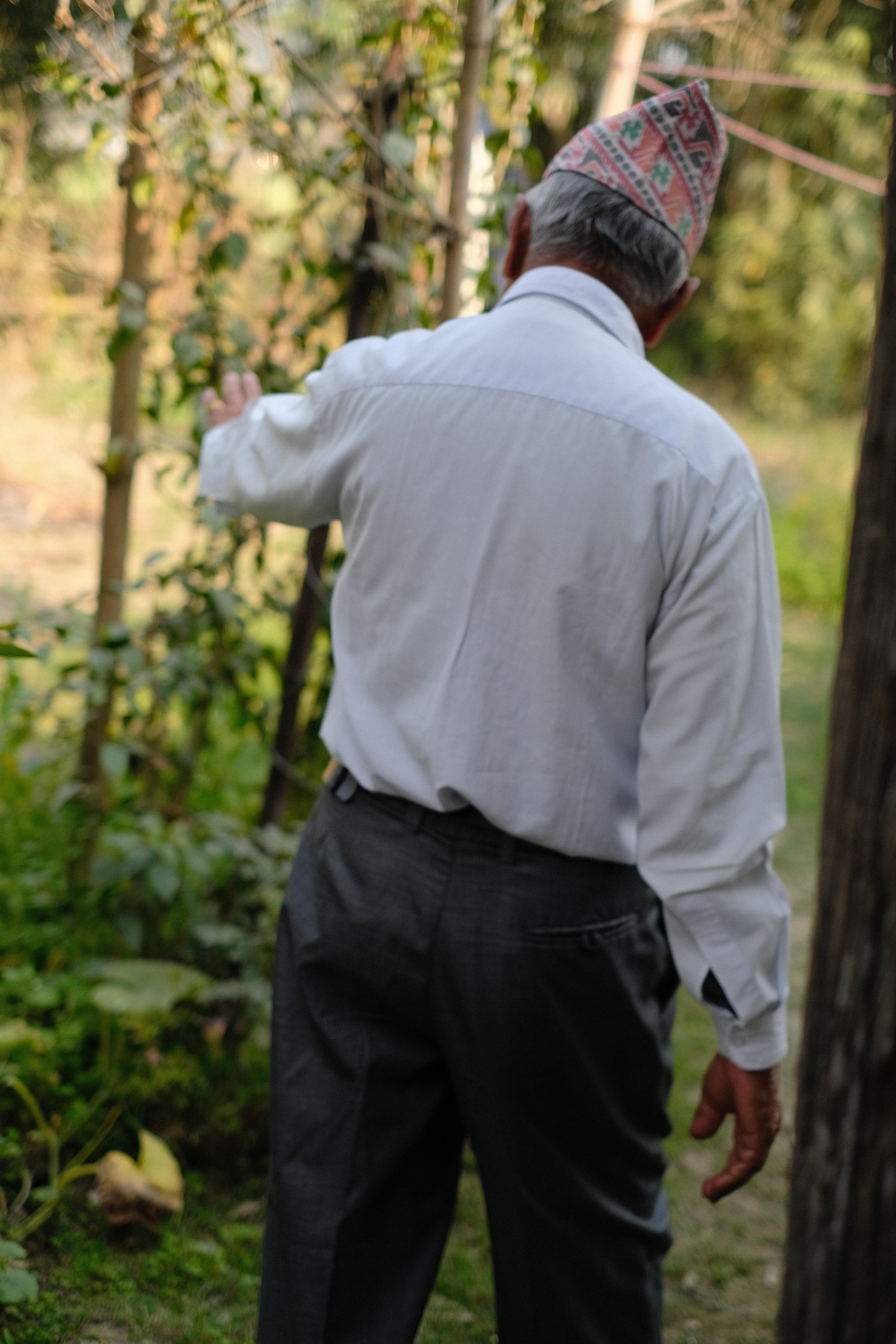An Ode to Buwa
Buwa, my grandfather, is turning 84 years old.
I wouldn’t say I’m particularly close with him. Growing up outside of Nepal for years during my youth and as an adult has added to the distance even though now we’re not that far from each other. But because I was born in Nepal, a culture I feel partially a part of (the question of home is one that I’ll tackle later), the eldest child of a family always has a special place.
Sometimes to my own unease I get love and attention from my family that I haven’t earnt, except by the sequence in which I was born. This is the type of love I receive from my grandfather. Like many he doesn’t know what I do, he doesn’t know the personality I’ve grown into, he’s worried about when I’ll get married and he wants me to come back to Nepal to do something for the country rather than live abroad. Try explaining an existential crisis and quitting your job; there’s no such thing, to be able to do that is a privilege, which he doesn’t know, but his journey has afforded me.
Since I’ve seen him last, he’s had to take out all his teeth and replace them with dentures. When he has to eat, he hides away, because perhaps he doesn’t want us to see - but if anything it reminds me of the fickle nature of the body as it starts giving away and compels me to understand him while he is whole.
His journey, a mystical relic, told through passing narratives and hearsay, are tales of poverty, loss, generosity, humanity, dignity. Stories like these don’t come out of my generation, not that our stories are any less worthy, but to an extent it's hard to find the journey of transformation that so obviously changes the lives of all future generations in a family. To try and understand is to also seek a reconciliation within myself, to recognise the privilege that his journey has afforded me.
On my recent trip to Chormara, a sleepy village one hour from Narayanghat in the Terai region of Nepal where my grandparents currently live, I decided to try and get some stories out of him so that I can record them. It proved more difficult than I thought when you’ve got a grandson who needs a few seconds to process Nepali conversations combined with his distracted mind that comes with old age. In my awkward stumble I try to find a natural way into a conversation about his life, some questions that I dutifully should already know the answers to, but because I don’t, makes the conversation even more difficult to initiate. How do you even begin -
“Hajur kaha hurkunu bhayo buwa?” - “How was it like where you grow up?” -
“Hajur sano huda kasto thiyo jiwan?” - “How was life when you were little?”
“Mero pailo kaam bhaneko malai didi, fufu ko dukha dekhera lagera pipe halnu lagako.” - maybe through innate intuition of my intentions he started himself. A story about how when recognising the struggle his sisters and others had to fetch water, at the age of 16, when he started his first job he installed a water pipe in the village he grew up in - Aamdada, Jhyagdi Khola Syangja, Nepal.
He lost his mother at only 14 months old. She was tending to the fields when she fell from a steep hill. The same hills that he, now older, saw his sisters traverse for hours just to fetch water. This was him recognising the struggle of his sister and other females of the village, but perhaps also an ode to a mother’s love he never received, but one he wanted to uphold.
Buwa and his older sister
In 1940’s Jaygdi Khola, with two gagris in hand they had to traverse for up to two hours through the steep hilly terrain just to fetch water and then make the same way back with water filled to the brim, being careful not to spill the precious cargo on the way back.
A young grandfather, only just into a job, wanted to install pipes to bring the water closer for everyone. Through his office he found out that the pipes needed were made in Calcutta (modern day Kolkata), India. They got approvals from the government office he worked in and brought the pipe through to Nepal. But the real struggle was getting it to Aamdada, Jhyagdi Khola where they lived at the time. This was in the late 1940’s and vehicles that could carry large water pipes were hard to come-by. Nowadays trucks rampage through the highway passing through Chormara. How does a 15-16 year old even begin to conceptualise all of this?
He eventually organised a truck to bring the pipes from the border of Nepal to a nearby town of Khasauli, modern day Butwal. It sat in Butwal for over a year because they couldn’t find a vehicle that agreed to bring it further down towards Aamdada, Jyagdi Khola. The first time he set foot in Butwal was when he walked there to try and find someone who could help bring the pipes. When he made this trek, he didn’t know where he was going to stay, or how he was going to find anyone to bring the pipes for him. Eventually through some coercing, contacts and money he found someone willing enough.
Once near Aamdada, Jyagdi Khola, they organised a team of perhaps bystanders, villagers, office workers to carry the pipe up to the well. Now how do you install it? It sat there for months, taunting the villagers of a easier future that couldn’t come sooner. But they eventually found someone in Kathmandu, that had experience through his work in India and could come and install the pipes for them. After organising food, lodging, money, transportation, they got the person to come and install the pipes.
This is just one of other countless stories he has. Over the years he’s helped build schools, worked to bring electricity to villages, migrated his whole family from Aamdada, Jyagdi Khola to Chormara and pushed his children (my father, aunts and uncles) to get an education, which doesn’t seem extraordinary now, but at the time it wasn’t the norm. For most, money was more important than an education and my father could have just as easily ended up in India working in labour and sending money back home. But just as Buwa had the foresight to lay the foundation for pipes where status quo had worked for years, he laid the foundation for his own family too.
Buwa diligently dusting off all the accolades he’s received over his lifetime
The following day in Chormara now almost 84, with a hose in hand he was watering the plants around the Chormara house. He was particularly proud of the flower that had just bloomed and wanted me to take a picture of it.
As I took the picture of the flower he was proud of, I thought back to the story of the pipe he helped install, in Aamdada, Jyagdi Khola some miles away from Chormara, some decades ago from 84.
I wondered if the water pipe he helped install was still there and if so how many flowers had bloomed because of it.





